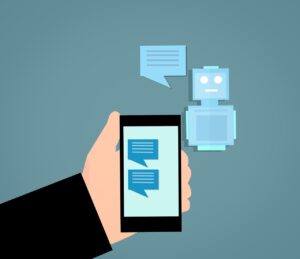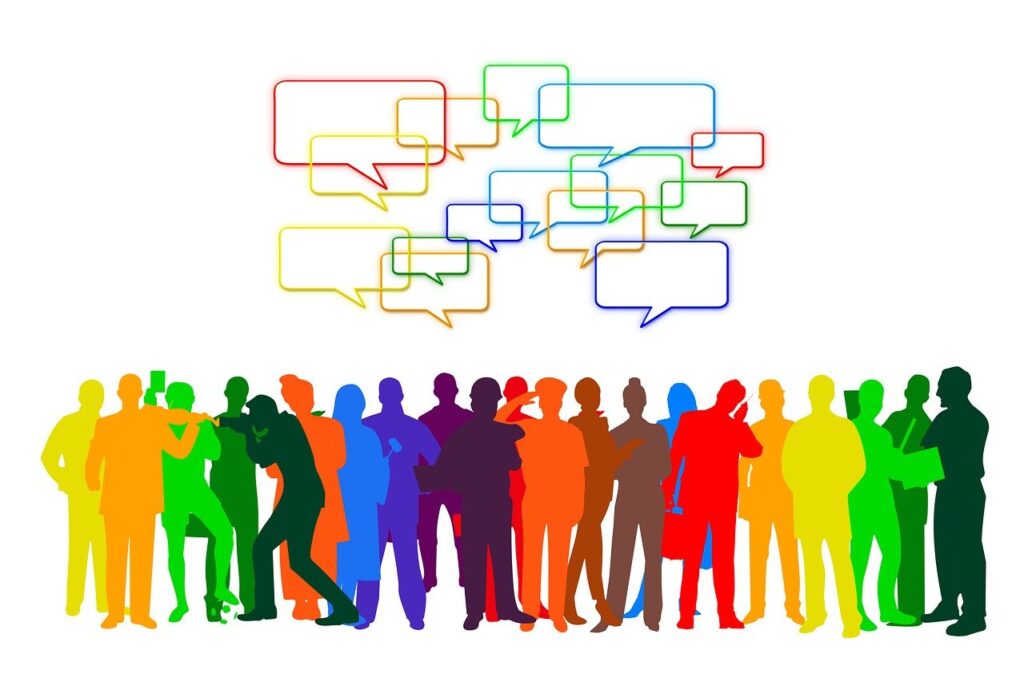Introduction
Hey there, education enthusiasts! Today, we’re diving into the transformative world of chatbots and how they can revolutionize educational institutions. Buckle up for a journey into the benefits, practical uses, real-life examples, and the exciting future of AI in education through chatbots.
What are Educational Chatbots?
Educational chatbots are artificial intelligence (AI) applications specifically designed to assist and support users in educational contexts. These chatbots leverage natural language processing (NLP) algorithms to understand and respond to user queries, provide information, offer guidance, and facilitate learning interactions. They are programmed to simulate human-like conversations, making them highly interactive and user-friendly.
What are the benefits of AI chatbots in education?

24/7 Accessibility
Imagine a virtual assistant at your fingertips, ready 24/7 to answer queries, provide information, and assist students and faculty members effortlessly. This virtual aide ensures instant access to support, eliminating time constraints and enhancing productivity. Whether it’s clarifying course details, offering study tips, or managing administrative tasks, this AI-powered assistant streamlines operations seamlessly.
Students benefit from personalized guidance, while faculty members enjoy efficient communication and task automation. With this virtual assistant, educational institutions can provide unparalleled support and elevate the learning experience for everyone involved.
Efficient Administrative Tasks
By automating administrative tasks like admissions, scheduling, grading, and course registrations, educational institutions save valuable time and resources. This streamlined process ensures efficiency and accuracy, reducing manual errors and delays.
Faculty members can focus more on teaching and research, while students experience smoother transitions and quicker responses. Automation also improves data management and reporting, facilitating informed decision-making and compliance. Ultimately, streamlining administrative tasks with technology optimizes the overall functioning of educational institutions.
Data-Driven Insights
Chatbots excel at gathering and analyzing data, offering valuable insights into student performance, engagement levels, and areas for improvement. This data-driven approach enables educators to tailor teaching strategies, interventions, and resources effectively.
By identifying trends and patterns, chatbots empower institutions to make informed decisions that enhance learning outcomes. They can track progress, assess learning styles, and recommend personalized learning paths for students. Additionally, chatbots contribute to fostering a data-driven culture within educational institutions, promoting continuous improvement and innovation.
Improved Communication
Chatbots significantly improve communication across educational institutions by enabling instant messaging, announcements, and notifications. Students, faculty, and staff members can easily share information, collaborate on projects, and address queries in real time.
This fosters a more connected and engaged community within the institution. Chatbots streamline communication channels, ensuring timely updates and responses to important matters. They facilitate efficient coordination for events, meetings, and academic activities. Overall, chatbots enhance the flow of information, promoting transparency, collaboration, and productivity among all stakeholders.

Personalized Learning
Chatbots in education revolutionize learning by delivering personalized experiences. They analyze student data to understand individual needs, preferences, and progress. Through adaptive algorithms, chatbots tailor content and resources to suit diverse learning styles effectively.
This customization optimizes engagement, retention, and overall learning outcomes. Whether a visual learner, auditory learner, or kinesthetic learner, chatbots adapt content delivery accordingly. They provide targeted practice exercises, quizzes, and feedback to reinforce learning concepts.
Practical Uses of Chatbots in Educational Institutions
Student Support
Chatbots offer academic guidance, suggest courses, and provide career counseling to students seamlessly. They assist in choosing the right path, offering personalized recommendations based on interests and goals. With chatbots, students receive tailored advice, ensuring informed decisions about their academic journey.
These virtual mentors support skill development, explore career options, and address concerns effectively. Chatbots empower students to navigate educational and professional landscapes confidently. They streamline the process, saving time and offering valuable insights for academic and career success.

FAQs and Information
Chatbots excel at answering FAQs regarding courses, admissions, deadlines, and campus facilities promptly. They provide accurate information, easing concerns and ensuring clarity for students and staff. By addressing common queries, chatbots reduce the workload on administrative personnel and enhance user satisfaction.
Users can access information instantly, eliminating waiting times and frustrations. This streamlined approach improves the overall user experience and efficiency within educational institutions. Chatbots also maintain updated knowledge bases, ensuring the latest information is readily available for users.
Automated Notifications
Chatbots automate reminder notifications for assignments, exams, events, and crucial announcements, ensuring timely communication. They schedule reminders based on user preferences and deadlines, reducing missed deadlines and enhancing organization. Users receive personalized notifications, keeping them informed and on track with their tasks and obligations.
Chatbots handle repetitive reminders efficiently, freeing up time for users and administrators. This proactive approach minimizes forgetfulness and improves overall task management and productivity. Educational institutions benefit from streamlined communication channels and improved engagement among students and staff.
Language Support
Chatbots support international students by providing language translations, aiding in cultural adaptation, and offering academic assistance. They facilitate communication in multiple languages, ensuring inclusivity and accessibility for diverse student populations. Chatbots help international students navigate cultural nuances and adjust to academic environments seamlessly.
By offering resources and guidance, they promote a smooth transition and enhance the overall learning experience. These virtual assistants bridge language barriers, fostering a supportive and welcoming atmosphere for international students. Educational institutions benefit from increased diversity, global collaboration, and enriched cultural exchanges facilitated by chatbots.
Feedback and Surveys
Chatbots streamline feedback collection from students and faculty, aiding in refining teaching methods, curriculum, and satisfaction levels. They gather valuable insights through surveys, assessments, and polls, fostering a data-driven improvement cycle. By analyzing feedback trends, chatbots identify areas for enhancement and innovation, enhancing educational outcomes.
This systematic approach promotes continuous learning and adaptation to meet evolving needs. Chatbots facilitate transparent communication channels, encouraging open dialogue and constructive feedback loops. Educational institutions leverage this feedback to create more engaging learning experiences and foster a positive environment.

The Future of AI in Education with Chatbots
- The future of AI in education with chatbots is a compelling narrative that envisions a dynamic, personalized, and inclusive learning ecosystem. As artificial intelligence continues to advance, chatbots are poised to play an increasingly transformative role in shaping the educational landscape.
- One of the key aspects of the future of AI in education is the evolution of chatbots into sophisticated virtual tutors. These advanced chatbots will leverage machine learning algorithms and adaptive technologies to deliver personalized learning experiences tailored to each student’s unique needs, preferences, and learning styles.
- Imagine a virtual tutor that not only provides explanations and guidance but also adapts its teaching approach based on real-time assessments of student progress and comprehension. This level of customization ensures that every student receives the support they need to excel academically.
- Moreover, the future of AI in education with chatbots extends beyond traditional classroom settings. Chatbots will facilitate lifelong learning and professional development by offering continuous support, skill-building opportunities, and career guidance. They will empower learners of all ages to acquire new knowledge, upskill or reskill, and navigate career pathways effectively in a rapidly evolving job market.
Conclusion
The future of AI in education with chatbots holds immense promise for revolutionizing how we learn, teach, and engage with knowledge. By harnessing the power of AI-driven chatbots, educational institutions can create adaptive, personalized, and impactful learning experiences that empower learners to thrive in the digital age and beyond.